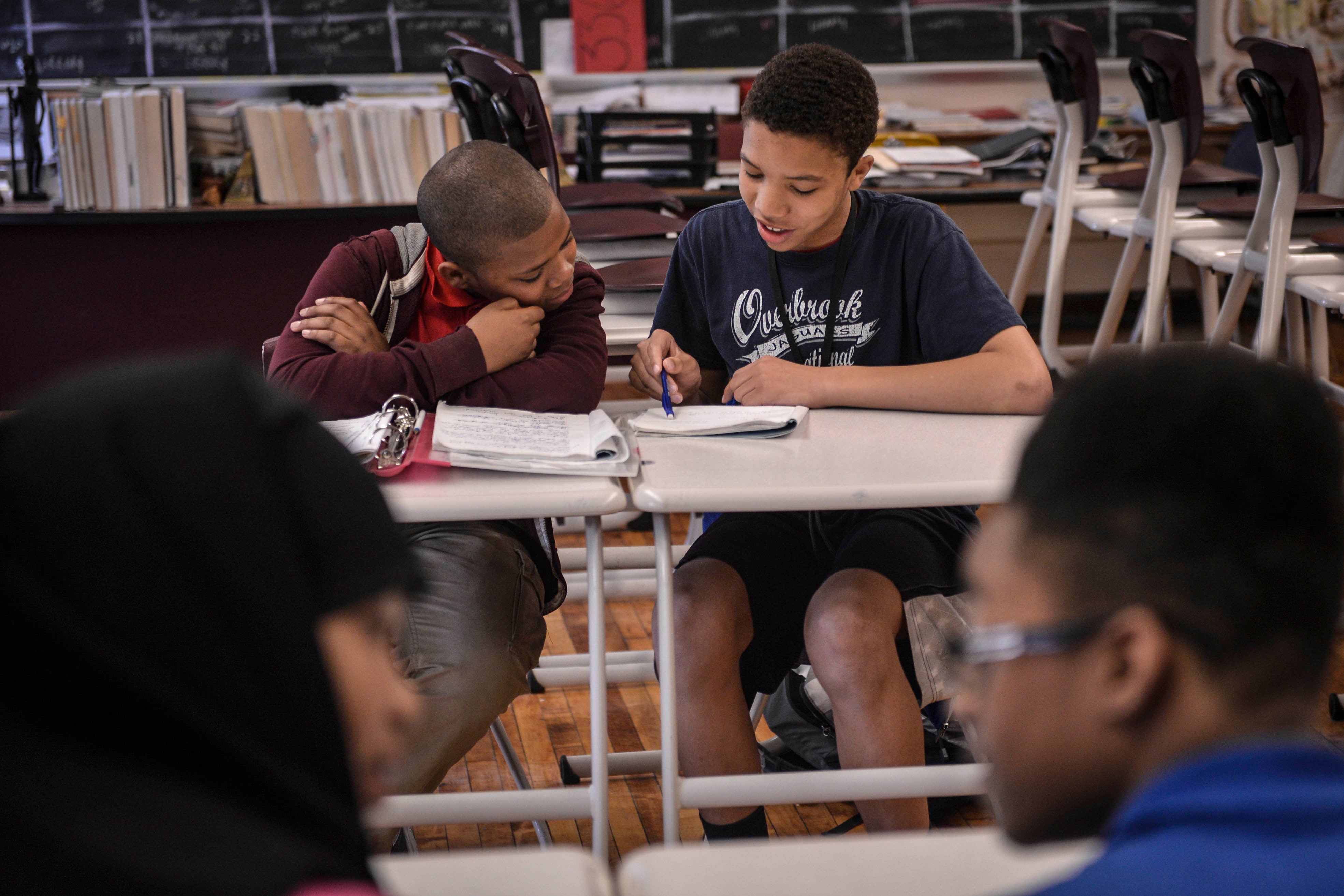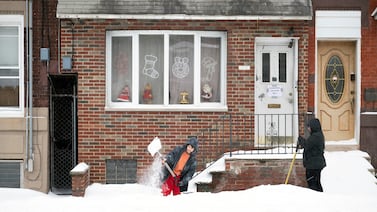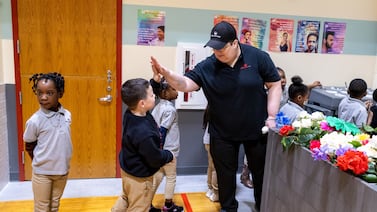Middle schoolers at five of Philadelphia’s selective admissions schools will no longer have to reapply to their schools for ninth grade, while preferences for students from historically underrepresented neighborhoods at those schools will continue but with updated data, the school district announced this week
Under the wide-ranging changes to selective school admissions, the district will also place a greater priority on ensuring students with disabilities and English language learners have access to magnet schools, based on mandates stemming from a 1994 court decision known as LeGare.
However, the district has decided to maintain a requirement that students reach certain test score cutoffs as a prerequisite for admission to 22 selective schools, despite a recommendation from a consulting firm. But those cutoff scores could change for at least some schools under the district’s revised admissions system.
The changes, which will go into effect for the 2024-25 school year, follow months of widespread confusion, discontent, and protests in the district about the new lottery-based system Philadelphia adopted in 2021. Students, educators, and others who criticized the process said it was hurting the long-term viability of several selective schools and would lead to the forced transfer of teachers and layoffs, among other concerns.
In early April, a dozen of these schools had hundreds of open seats just a week before the deadline for students to pick their schools next year. At the same time, many students who applied to selective schools didn’t get into any of them.
In June, the consulting firm Accenture told the district that among students, educators, and others who were surveyed about the new system, only about one in five said they liked it.
Accenture also concluded that the process was confusing, not well communicated, and potentially excluded promising students from the candidate pool.
The application process for the 2024-25 school year runs from Sept. 15 to Oct. 27.
Changes to selective admissions unpopular among students, staff
Two years ago, Philadelphia overhauled its admissions process for the city’s 22 selective (also known as “criteria-based”) schools to create a lottery-based system, with the goal of providing more equity and opportunities, especially for Black and brown students from relatively low-income neighborhoods who have typically lacked access to these schools.
The changes reduced the power of principals to influence the makeup of their incoming classes through factors like interviews, and officials hoped the system would reduce conscious and unconscious bias.
This new system resulted in higher Black and Latino enrollment at some of the selective schools, according to a Chalkbeat analysis from last year. But the new process has made only a small dent in the demographics at Central and Masterman, the city’s most selective schools, which continued to have much higher proportions of white and Asian students and lower proportions of Black and Latino students, than the district as a whole.
But last year, a group of parents filed a lawsuit in federal court to overturn the new admissions process. They called it a “blatantly unconstitutional race-based system.” The outcome of that suit is pending.
Under the revised system the district announced Thursday, the selective admissions process will continue to include preferences for students who come from historically underrepresented ZIP codes, mostly in North and West Philadelphia. However, the ZIP codes that will get preferences are still being determined based on the newest data, according to district spokesperson Marissa Orbanek.
But the lottery resulted in hundreds of qualified students receiving admission to none of their choices and reduced enrollment at many schools severely enough that they lost teachers and other staff.
Under the current system, students entering ninth grade list five schools of interest not ranked by preference. They are entered into lotteries for each school for which they qualified — a process that resulted in some students getting into all five of the most sought-after schools, while others got into none.
For applying this fall to enter in the 2024-25 year, there will be a second stage for students who received no offers through the lottery. If they were waitlisted at all schools to which they applied, they will be offered admission to schools where seats are still available and there is no waitlist, according to a letter sent to families by Superintendent Tony Watlington.
In the first two years of the lottery system that began in 2021, students who were accepted into earlier grades at five highly selective schools that start in middle school — Masterman, Carver Engineering and Science, Girard Academic Music Program (GAMP), Hill Freedman, and Science Leadership Academy @ Beeber — had to reapply for the ninth grade, a requirement that caused consternation among many parents. Now, all who meet admissions requirements can stay at those schools.
That change, however, means the district will also reduce the size of the middle school at Masterman, where the lower grades enroll more students than the high school.
Orbanek said that all the criteria for the 22 most selective schools are being jointly worked out between central office administrators and individual schools. The precise test scores minimums for each school are still under development.
Accenture also found that the cutoff score requirement on the state exam — the Pennsylvania System of School Assessment, or PSSA — created issues with filling enrollment at 12 of the selective schools, including Girls High and SLA @ Beeber. Those 12 schools received fewer eligible applications than the lottery cap, leading to a 100% acceptance rate, but some of them were still unable to fill all available seats.
“The requirements for admission to these schools, particularly the PSSA percentile, may have been set too high to maximize the number of offers received,” the consultant’s report said.
Accenture’s survey results found that more than 44% of principal respondents were “strongly dissatisfied or dissatisfied” with the PSSA as a criterion for admissions, compared to more than 26.2% who felt that way about the attendance requirement, and 24.6% for grades requirements. Accenture recommended that district leaders “collaborate with school leaders” to ensure each school has appropriate admissions criteria.
Accenture’s data analysis showed that over 90% of applicants to ninth grade in 2022 “did not meet the PSSA requirement.” About half didn’t meet the grade requirements and a third failed to qualify based on attendance.
Before the lottery system, principals were able to interview and otherwise vet applicants who looked promising, but did not technically qualify based on test scores and, sometimes, one of the other criteria. A teacher at one school, who did not want to be identified due to not being authorized to speak, said that a study of students admitted who met the technical requirements compared to those who didn’t showed similar outcomes regarding graduation and experiences after high school.
Regarding access for students with disabilities and English learners to selective schools, the district’s changes to the admissions process include “improving the impartial review process” for such students at the high school level and “creating a process for an individualized review” for those applying to middle schools.
Margie Wakelin, senior attorney at the Education Law Center, which advocates for students with disabilities, noted in a statement that before the 2021 lottery system, only .5% of students at Central High had individualized education plans. Under the 2021 system, that increased to 1.3% for the 2022-23 school year, she said.
“We support efforts to examine the current LeGare process to determine if it is working for students with disabilities and English learners. Data indicates that this is not currently the case,” she said.
Dale Mezzacappa is a senior writer for Chalkbeat Philadelphia, where she covers K-12 schools and early childhood education in Philadelphia. Contact Dale at dmezzacappa@chalkbeat.org.





